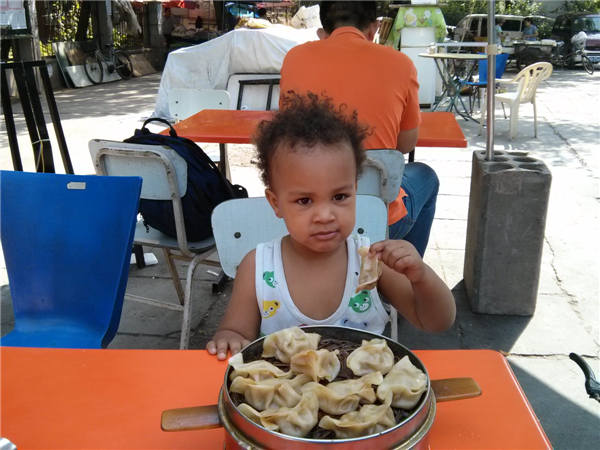 |
|
Zuri Golding, 2, eats traditional Chinese steamed dumplings. She's growing up in China with her American father Nick Golding and Ugandan mother Julian Kirabo. Her parents believe such a multicultural and multilingual upbringing will help their daughter in the future. |
Janet Blomberg, executive director of the TCK care and education organization Interaction International, says: "TCKs are figuring out what's normal and how the world works at the same time they're figuring out who they are. When they get beyond age 18, they don't stop being a third-culture kid ... You become an adult third-culture kid."
American Nick Golding and Ugandan Julian Kirabo realize their 2-year-old girl Zuri will be influenced by growing up in Beijing. But they're not sure how - or how much.
"I believe the (TCK) phenomenon is overhyped and overgeneralized," Golding says.
"It seems like an attempt to use a single concept to describe a large group of children that have very different situations ... Missionary kids who live most of their childhood in rural Uganda probably have little in common with the children of business executives who spend their childhood living in major cities throughout Asia."
Portuguese parents Ana Magalhaes and Renato Roldao, who've raised their 5-year-old son Pedro in Beijing since he was 6 months old, also aren't certain if the categorization overgeneralizes.
"But, for sure, we can see our son is different from the kids back home who are raised in a single culture," Magalhaes says.
Blinn says that while TCKs in China aren't much different from TCKs elsewhere, resources for these children have mushroomed in Beijing since he arrived in 2003.
|
|
|
|
|
|
